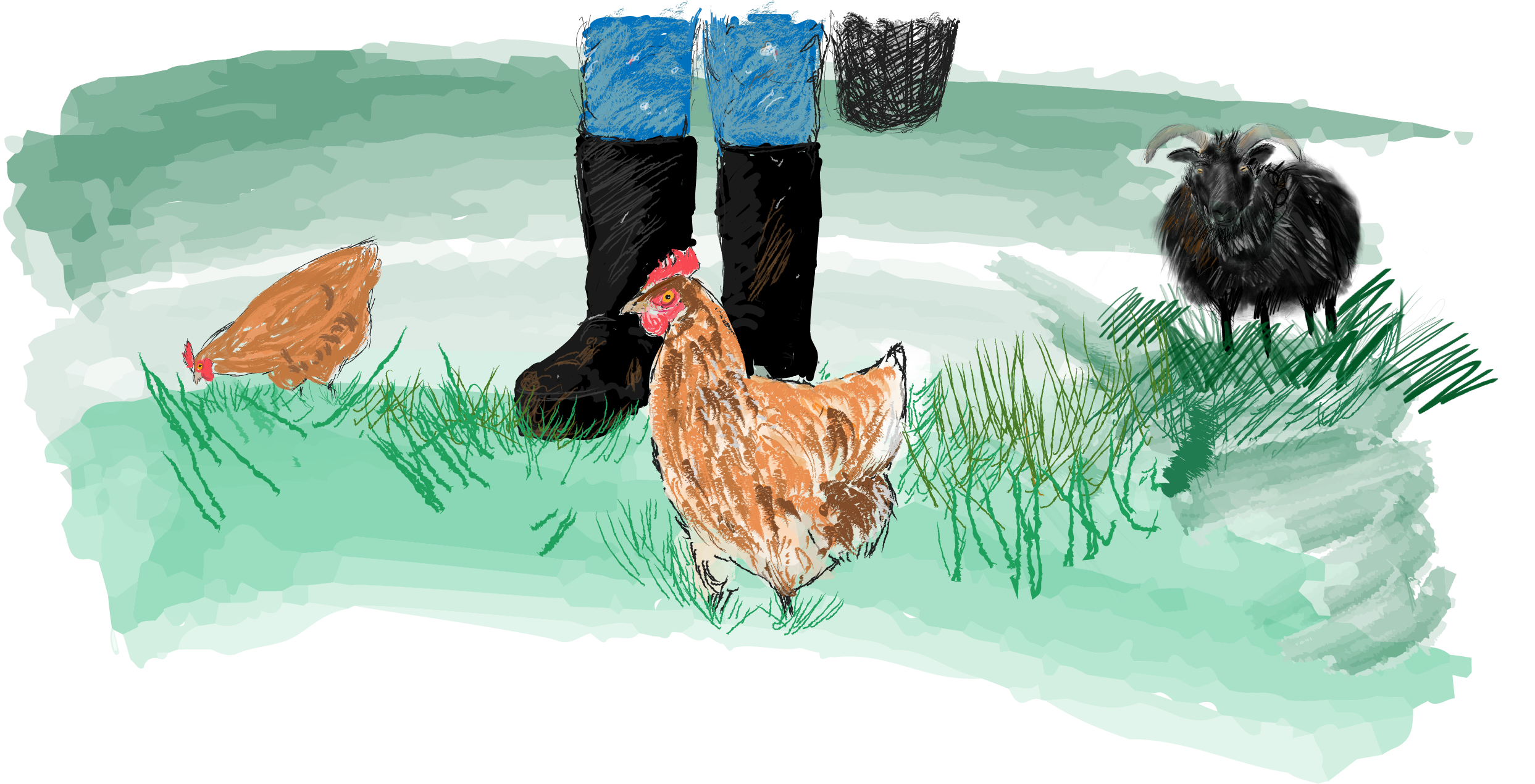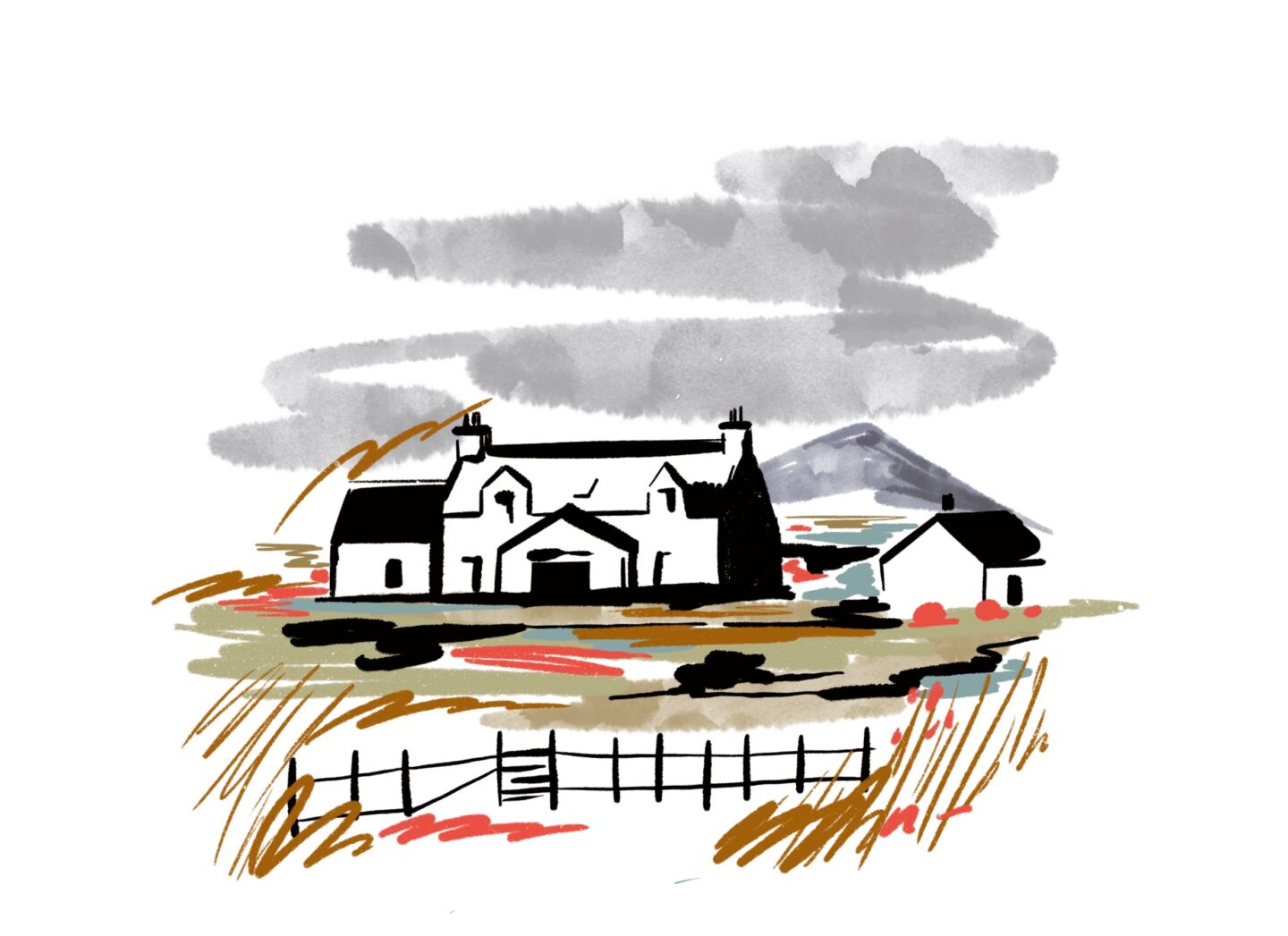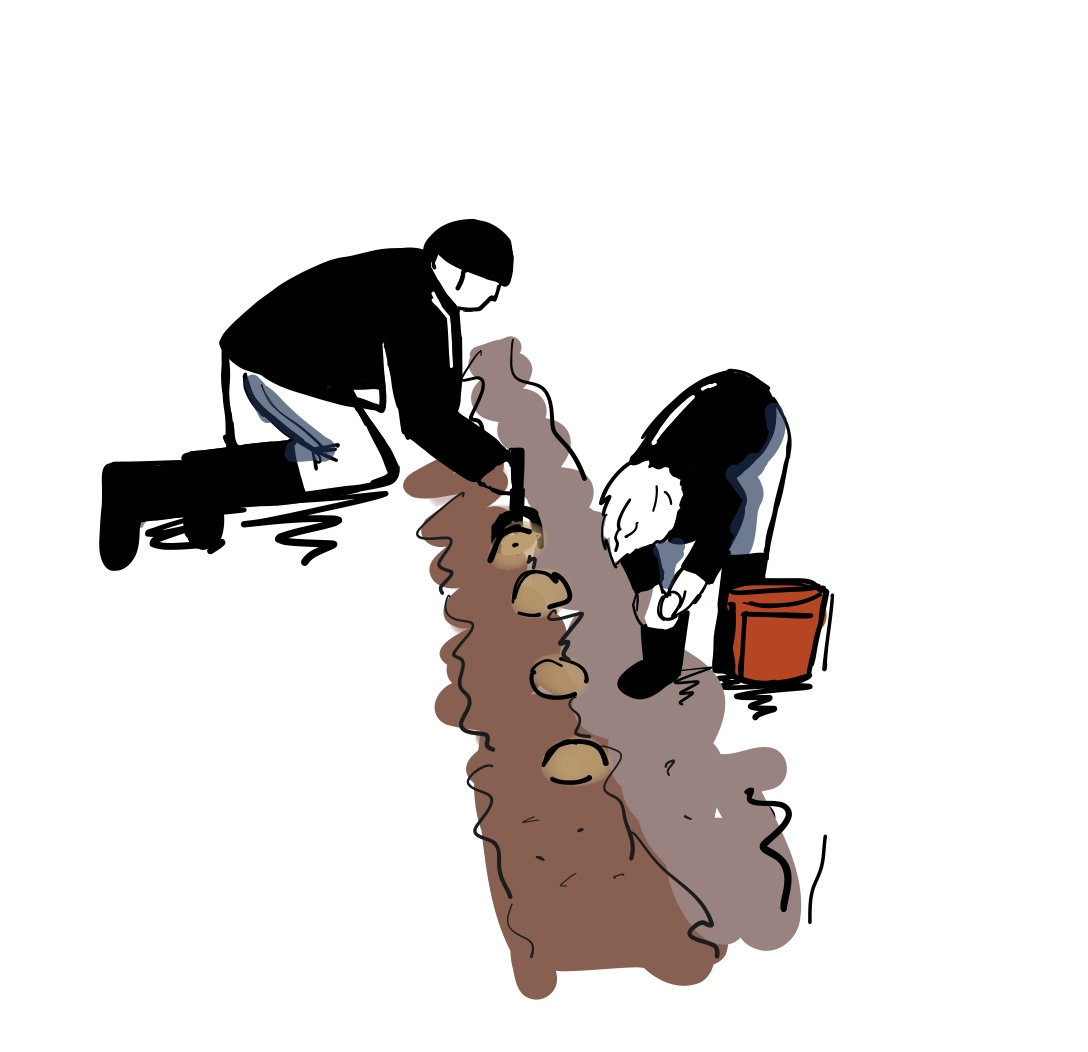Crofting, Housing & Sustainability
For generations, our island communities have been surviving and living off the land.

While braving the elements, respecting our natural surroundings and living off our land and seas, crofting has been crucial in providing a sustainable life and home. Fast forward to the modern day and although things have changed drastically, our priorities remain the same. These priorities may have come in a slightly different order over the years; Housing, Sustainability & Crofting.
In our previously recorded Young Uist Voices Podcast, we recorded voice memos from young locals asking for their thoughts on island life. It’s no surprise that the global crisis of housing is also a heavy hitter in our community. Lack of affordable housing is a serious issue within the islands and it’s making life very difficult for our young islanders to find accommodation. The issue is also discouraging returners from coming back ‘home’. With housing and crofting markets soaring it’s very difficult for young locals to gain their first step on the ladder or even to find suitable rental accommodation. We’ve spoken to a young local, asking for their thoughts on housing, crofting and local sustainability.
“I think we need more affordable housing on the islands – we have the space for it. One real challenge for folk living here is the effort and costs involved in just getting from A to B.
So, rather than small building projects, I’d like to see a more concentrated approach, a new township with flats, using a more efficient design which could include things like a community heat source with amenities close by.
We have the space, so let’s try something new and be more ambitious.“
South Uist made headlines in 2021 within the housing market, when a seller would only accept bids from first time buyers or local people. This brave move was welcomed by the islanders and also by other Scottish communities who are similarly facing a housing crisis. Croft prices are skyrocketing. Those who are trying to buy or get into crofting are struggling with the high price tag of crofts these days.
“Access to land is too difficult, with the buoyant market in croft tenancies causing even more hardships for anyone interested in getting into it. Crofting can cost a lot to get into… that’s just wrong to me. There’s so many people who are crying out for crofts across the west coast of Scotland, and so much land which could be turned over to satisfy that need.“

“To me the problem (of high prices) isn’t just in well off incomers buying up property, but it’s a result of both the market in croft tenancies, and the introduction of the ‘right to buy’, which has reduced the number of crofts. It’s driving up prices and increasing inequity, which has driven many to consider leaving. We need to change our laws to restrict these practices.
You cannot blame people for making the best decision for their family finances, in selling at the highest possible price. To artificially lower the price of your own property, for the benefit of an unrelated, albeit worthy first time buyer, is a luxury most just don’t have.”
It’s becoming more common for houses to be sold locally on Social Media. This clever move gives local people the upper hand in seeing what’s out there and available. We can also take solace in the fact that we are seeing a new housing project rising in Lochboisdale with the Smart Clachan Project. This is a housing project run by Rural Housing Scotland in partnership with Stòras Uibhist.
Crofting has been an integral part of island living for generations. Individuals, families and full communities have managed to feed and clothe themselves with the rawest local materials. However, today, in the land of crowdie and cream, tastes and styles have moved on. People, as expected, rely more on their local shops and the internet than they do on their land and the natural resources of the island. Maybe Uist would do well to consider bringing the old traditions back into their lives.

“The croft that we live on today has been in our family for over 100 years. It sustained our grandparents and their parents before them, so it really has made us who we are today – that kind of connection to ‘place’ is something rare, which should not be lost.”
But we do still need to move forward, and make it work for a very different world to when the area was originally split into crofts. Our needs are different, so we should take a different approach. The next land reform act going through parliament must have consideration of crofting communities at its core. Crofting is all too often seen as a thing of the past, but instead, a reformed crofting system could well be an ideal model for land tenure of the future.“
Crofting is a time consuming, costly commitment. Given that we are also in a climate emergency, this could be the time for us to turn back to our natural environment to grow and rear more of our own produce, locally.
“At the moment, we are spending money on imported goods. We’re buying expensive vegetables when it’s possible to be growing and producing more food locally. There are parts of the island that could be put to better use and be used more efficiently.
Crofts were designed, in their size and their situation, in many cases over 100 years ago… so I don’t believe they really can suit the needs of what people want out of them these days.
I would say that ordinary folk are often more interested in working towards being a bit more self-sufficient, rather than rearing livestock for sale. Considering the complexities and costs involved with that, you can see why.
More appealing to many might be just a small amount of land, with space for a few poly tunnels, some hens, and space to grow potatoes to help satisfy their needs or supplement their income. Traditional crofts are ill suited for modern needs, and they just cost too much to maintain.
This land could even be split up and separated out to make it all a bit fairer.“
Although more could be done for us to become more sustainable and self-sufficient on our islands, there is currently some good work happening in our communities. With covid, the remote working revolution has had a positive impact on our community. We slowly are seeing more people move back within many various interesting fiends.
“I believe there are more opportunities out there for business than some would think, with companies like Uist Asco, who are making products from seaweeds harvested and processed on the island setting a great example of what can be done with a bit of fresh thinking.
I would love to see more well paid and interesting jobs, created by new industries that utilise the resources which we have available to us. This would strengthen the island economy and be beneficial for all.“
With an impending climate crisis, now is certainly the time to turn back to our natural resources and become a more self-sustaining island community. Maybe John is on to something!
